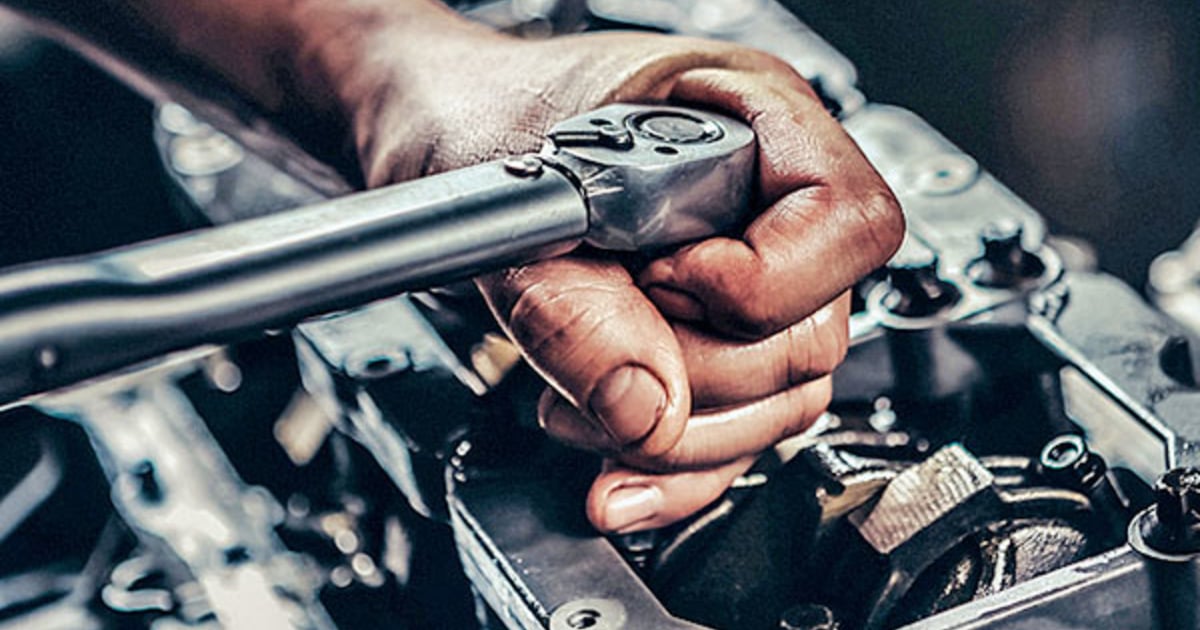
WASHINGTON — Tesla Inc. and Rivian Automotive Inc. have endorsed an agreement backed by major automakers and independent repair shops on automotive right to repair that would include necessary telematics data.
In separate letters sent to executives at the Alliance for Automotive Innovation, Automotive Service Association and Society of Collision Repair Specialists, the two EV makers pledged their support for tenets outlined in a new commitment unveiled in July.
“Rivian agrees that our customers should have access to safe and proper repairs throughout a vehicle’s life cycle and further is aligned with supporting the independent repair community as provided in the commitment,” Alan Hoffman, Rivian’s chief policy officer, wrote in a letter sent Aug. 9.
Tesla’s Rohan Patel, vice president of public policy and business development, also said the EV maker agrees with the commitment’s standards and is “happy to support this effort.”
“In addition to supporting the customer’s right to choose their preferred method of repairing their vehicle, Tesla also protects drivers’ safety and security through industry-backed standards,” Patel wrote in a letter sent July 29. “The commitment aligns with Tesla’s mission and our focus on supporting our customer’s rights while protecting their safety and security.”
Tesla and Rivian are not members of the alliance, which represents automakers such as General Motors, Ford, Toyota and Volkswagen.
Under the new deal, independent repair shops will continue to have access to the same diagnostic and repair information automakers make available to their authorized dealer networks even as technology evolves. That access also applies to telematics data needed to diagnose and repair a vehicle, if not otherwise available. It also covers all vehicle technologies and powertrains, including battery-electric, plug-in hybrid and fuel cell vehicles.
The parties also have pledged to work together on education and training, with additional resources available to independent repair shops such as through an automaker’s repair website or via third-party information providers, software and tools.
They also committed to working together in support of federal legislation “to codify the various provisions of this commitment, ensuring consumer choice in vehicle repair across the country” and to oppose any federal or state legislation that directly conflicts with the commitment.
The Alliance for Automotive Innovation, the Automotive Service Association and the Society of Collision Repair Specialists said the updated commitment affirms a 2014 national memorandum of understanding between automakers and the independent repair industry.
The 2014 agreement, which followed Massachusetts’ automotive right-to-repair law in 2013, gave shops in all states the same access to diagnostic and repair information.
The original signers of the 2014 agreement were the Automotive Aftermarket Industry Association (now known as the Auto Care Association) and the Coalition for Auto Repair Equality as well as the Alliance of Automobile Manufacturers and the Association of Global Automakers, which merged in 2020 to form the Alliance for Automotive Innovation.
The latest backing of the new agreement comes as Congress considers right-to-repair legislation that, in part, targets the auto industry: the Right to Equitable and Professional Auto Industry Repair and Save Money on Auto Repair Transportation acts.
Meanwhile, the CAR Coalition, a group whose members include AutoZone and Allstate, blasted the agreement in a statement last month and questioned its intent.
“This pact masquerades as pro-consumer but, in reality, does nothing to expand consumer choices and give a vehicle owner access to repair data. … Additionally, any new agreement touted in the letter is entirely unenforceable and nothing more than window dressing,” Justin Rzepka, the group’s executive director, said in a statement.
He referred to the agreement as “an attempt to prevent Congress from advancing consumer-focused legislation like the SMART and REPAIR acts that would break the monopoly on auto parts and protect consumers’ rights to repair options and data access.”
At the state level, the Alliance for Automotive Innovation is representing automakers in Massachusetts to block a voter-approved measure that revised and expanded the state’s existing right-to-repair law. The alliance has argued the state’s amended law conflicts with several federal laws, poses cybersecurity and vehicle safety risks and sets an impossible timeline for compliance.
NHTSA said Tuesday that automakers could comply with the law after previously telling them not to comply because of cybersecurity and safety concerns.

